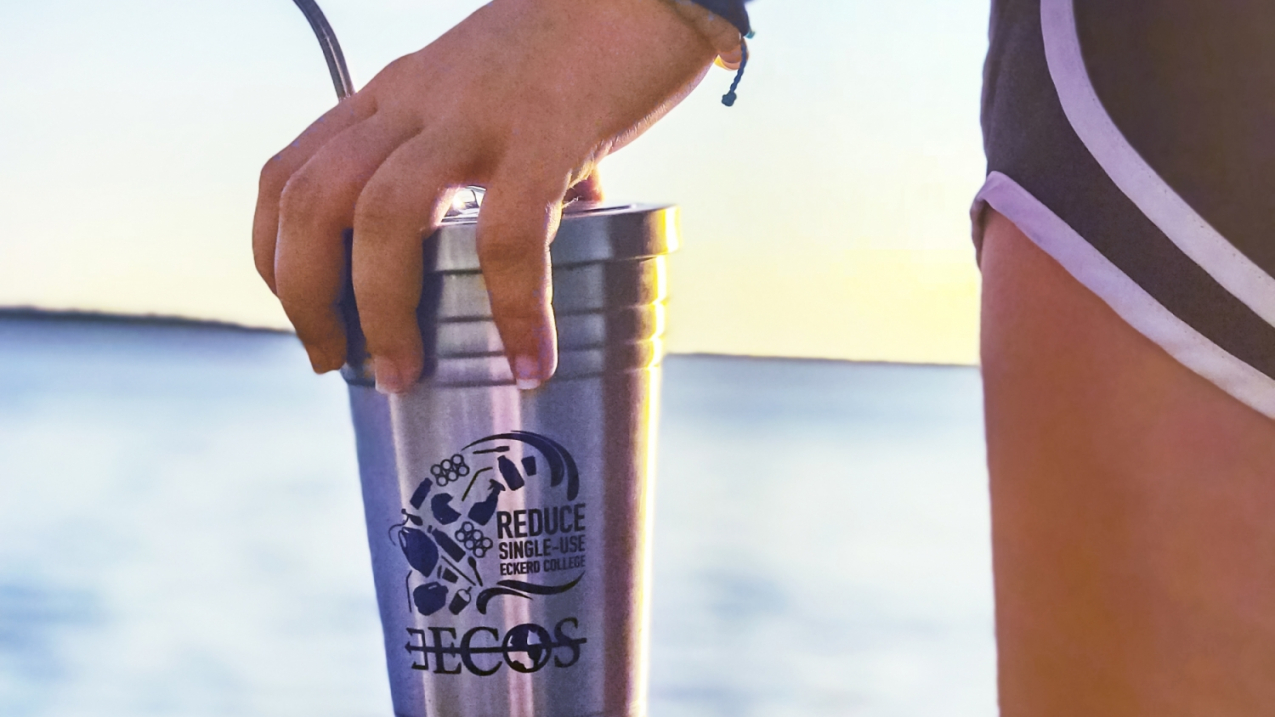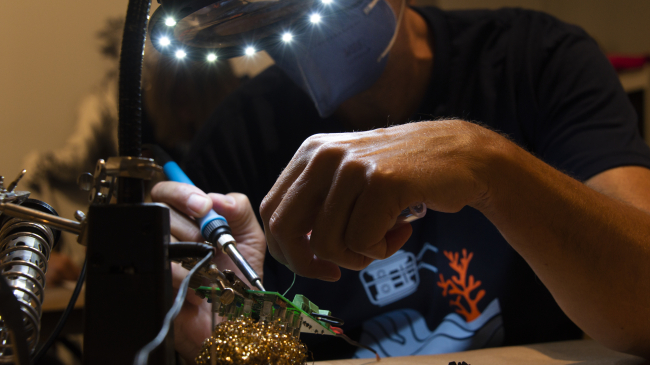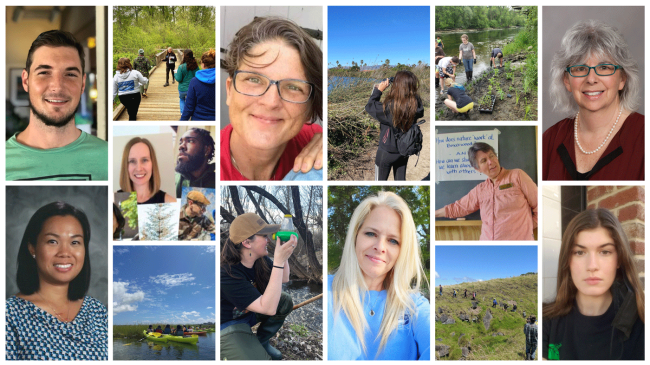Read all
More stories in Goal 2
In 2018, Eckerd College, a small liberal arts college in St. Petersburg, Florida, received a grant from NOAA’s Marine Debris Program to implement the Reduce Single-Use offsite link project. Since then, Eckerd has gone on to receive additional funding from both NOAA and EPA, transforming the relationship to single-use plastics on their campus and beyond.

Reusable tumblers were distributed to students as a part of Eckerd College's Reduce Single-Use project funded by the NOAA Marine Debris Program. (Image credit: Courtesy of Eckerd College.)
Read all
More stories in Goal 2
The Reduce Single-Use team of faculty and students fostered a cultural change on campus. Each member of the community was provided with bamboo utensils. Water bottle refilling stations were installed around campus, and the school also replaced single-use items in the dining hall, such as plastic utensils, and stopped using plastic bags in the college bookstore. The team also conducted campus and beach cleanups and ran plastic reduction challenges where individuals tracked the number of plastic alternatives as well as counts of plastic items used. These efforts resulted in Eckerd College’s President signing the “Eckerd College Break Free From Plastics Pledge,” officially committing the school to reduce plastic where possible. The Commitment was implemented in January 2020 and reaffirmed in October 2022.
“The success of the Reduce Single-Use project to educate and motivate young adults to reduce their plastic use and ultimately prevent marine debris is an inspiration for the local community and college campuses across the country,” said Ashley Hill, NOAA Marine Debris Program Florida Regional Coordinator.
Outreach was an important component of the project to communicate project goals with community members. Many came together to participate in cleanups and do-it-yourself workshops for making plastic alternatives, including beeswax wrap for food and bags made out of recycled t-shirts. The community also helped to install art pieces at the James Center for Molecular and Life Sciences that students and other community members created out of recycled or found single-use plastic. The exhibition was titled, “Used Once, Lasts Forever,” and the goal of these pieces was to communicate the impacts of plastic pollution to the public.
After the successful completion of the first Reduce Single-Use grant, Eckerd received additional funding to expand this work with environmental behavior change research faculty at the University of North Florida in 2020. Through this expanded initiative and growth in the use of evidence-based behavior change approaches, both schools have been encouraging students to make purchasing and personal decisions that are sustainable and don’t produce unnecessary plastic waste. Students filled out surveys in conjunction with plastic reduction challenges to gauge their knowledge, views, and beliefs related to plastics, including support of plastic reducing policies. Additionally, the University worked with its local community to commit to avoiding the consumption of single-use plastics whenever possible.
The success of the Reduce Single-Use project to educate and motivate young adults to reduce their plastic use and ultimately prevent marine debris is an inspiration for the local community and college campuses across the country.
As a part of this effort, the Reduce Single-Use team also designed a beta version of an iPhone app for participants to log their use and refusal of plastic items during the plastic reduction challenges. Shannon Gowans and Amy Siuda of the Reduce Single-Use team shared, “The Remora app will be a game-changer. Not only does the app encourage individual users to refuse single-use plastic, but the collective data generated by the app fills the knowledge gap between plastic production and marine debris generation. By understanding the human dimension of plastic use, policy makers can implement effective legislation to reduce plastic consumption.”
In 2022, Eckerd College received an additional grant from the Environmental Protection Agency offsite link to further expand on their NOAA-funded work, building on the app design to help the surrounding Pinellas County community to digitally track their single-use plastic consumption and hopefully keep plastic out of the Gulf of Mexico.




